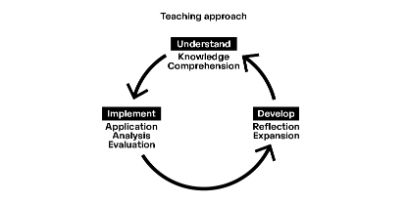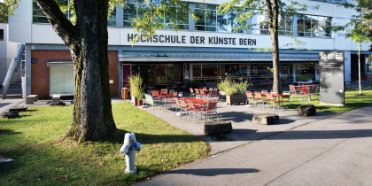Full-time and part-time study
Full-time Degree
The Bachelor’s Programme takes three years and 180 ECTS credits to complete.
You will finish your studies after six semesters with the submission of your BA thesis.
Working and Studying
Full-time study requires a commitment of up to 40 hours per week. You may work alongside your studies. However, to ensure you have sufficient time for your coursework, lectures, projects and exam preparation, we recommend working no more than eight hours per week.
Part-time study
The course of study takes four years to complete, with the option of an extension, and comprises 180 ECTS credits. You complete the programme with a Bachelor’s dissertation.
The weekly workload in the part-time programme corresponds to approximately half that of a full-time course of study. The actual workload varies depending on the number of modules taken.
The reduced workload per semester is achieved through the alternating structure of taught modules and projects each semester. Whereas in the full-time programme modules and projects run concurrently, in the part-time programme they are scheduled in separate semesters.
Experience shows that part-time study can be combined effectively with employment of around 40 per cent. Subject to certain conditions, your professional experience may be partially credited towards your studies.
Study Plan
In the BA Transformation Design you will acquire progressively advanced skills in a variety of interlinked teaching and learning formats. The curriculum is structured around three core module clusters:
Understand – Knowledge and Comprehension
In this module cluster, you will acquire knowledge and skills and apply these to live cases, the so-called ‘Projects’. Over the course of four semesters, you will attend various modules in this cluster (basic courses and advanced courses).
Implement – Application, Analysis, Evaluation
In this module you will work in teams on live cases – real world challenges faced by companies or organisations – for the first four semesters. Each case will take up an entire semester, allowing your team to explore the challenges in-depth.
Develop – Reflection and Expansion
This module cluster encourages you to reflect on the skills you have acquired to support your self-directed learning and personal development. You will apply your acquired knowledge in different cultural and regional contexts. In the fifth semester, you will complete an internship or a semester abroad to put your skills to the test in a professional environment.
Modules and Courses
The details of this innovative new BA programme are still being finalized. In the first two semesters, you will acquire fundamental knowledge and skills in the field of transformation design in the basic courses of the module cluster ‘Understand’.
In the third and fourth semesters, you will acquire additional specialist knowledge and deepen your understanding of the topics covered in the basic courses by attending elective advanced courses. This will enable you to build your personal specialisation. The detailed course content will be available here at a later date.
Please sign up here to receive updates on the development of the programme.
The basic courses cover the following fundamental building blocks of transformation design:




